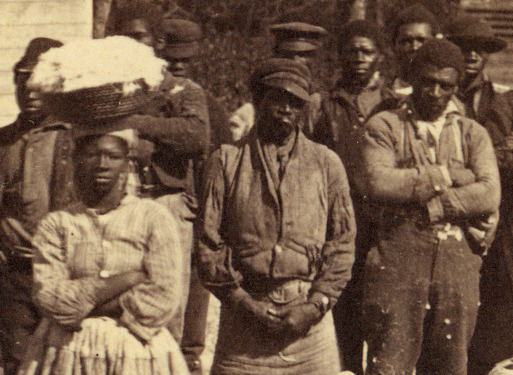
When I was young I had no doubt the US civil war was fought over slavery: this is what we were taught in school in Italy. In later years my understanding got blurred. Had I been asked what the civil war was all about a month ago, I would not have answered “slavery”, but rather a complex set of issues where slavery was more a pretext than an issue. Over the last 30/40 years my perception over the US civil war has changed. Maybe the movie “Lincoln” confused me, but certainly I was also indirectly affected somehow by the “Lost Cause” reasoning.
A lot of younger Americans have become a bit confused too. Of course, the direct, immediate cause of the war was the decision by the southern states to secede from the Union, and in doing so, they made the mistake of firing on Fort Sumter, a Federal fort in South Carolina. Lincoln argued that the Federal Union was indissoluble. The passage below is part of a letter Lincoln wrote to Horace Greeley, then the editor of the New York Tribune.
“I would save the Union. I would save it the shortest way under the Constitution. The sooner the national authority can be restored; the nearer the Union will be “the Union as it was.” If there be those who would not save the Union, unless they could at the same time save slavery, I do not agree with them. If there be those who would not save the Union unless they could at the same time destroy slavery, I do not agree with them. My paramount object in this struggle is to save the Union, and is not either to save or to destroy slavery. If I could save the Union without freeing any slave I would do it, and if I could save it by freeing all the slaves I would do it; and if I could save it by freeing some and leaving others alone I would also do that. What I do about slavery, and the colored race, I do because I believe it helps to save the Union; and what I forbear, I forbear because I do not believe it would help to save the Union. I shall do less whenever I shall believe what I am doing hurts the cause, and I shall do more whenever I shall believe doing more will help the cause. I shall try to correct errors when shown to be errors; and I shall adopt new views so fast as they shall appear to be true views.”
Lincoln knew how to use words, and this is Lincoln at his best. But you must be aware that as he wrote this, he had an as yet unsigned copy of the Emancipation Declaration (which freed the slaves) on his desk. So the deep underlying truth was and is that ultimately the war was about slavery. And everyone knew it. Certainly General Lee knew it, and he chose slavery. I have never had much sympathy for him.
But how did Lincoln knew that abolishing slavery would save the Union?
He didn’t. And he didn’t issue the Emancipation Proclamation until relatively late in the war. He abolished slavery at a moment when he thought to do so would stimulate slave revolt in the South and thereby hasten the end of the war.
But then how can we argue that “the deep underlying truth was and is that ultimately the war was about slavery”?
The desire of the southern states to leave the Union arose because they were gradually losing on all the political and economic issues related to slavery. The Northern and western states wouldn’t agree to continue to allow new slave states to be added to the Union from the territories not yet organized as formal states. The northern states were industrializing and were beginning to impose tariffs on imports which was leading to retaliatory tariffs on U.S. exports which were largely cotton, indigo, and timber from the south. The Brits were vigorously policing and closing down the slave trade between Africa, the Caribbean, and the U.S. Washington, under Northern state influence, was not willing to have the U.S. Navy oppose the Brits. Had there been no slavery there would never have been any question of separating from the Union.
Share



















Lascia un commento